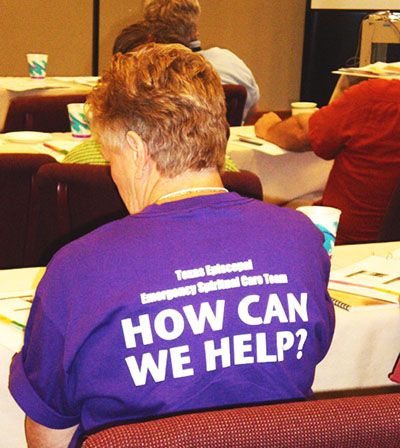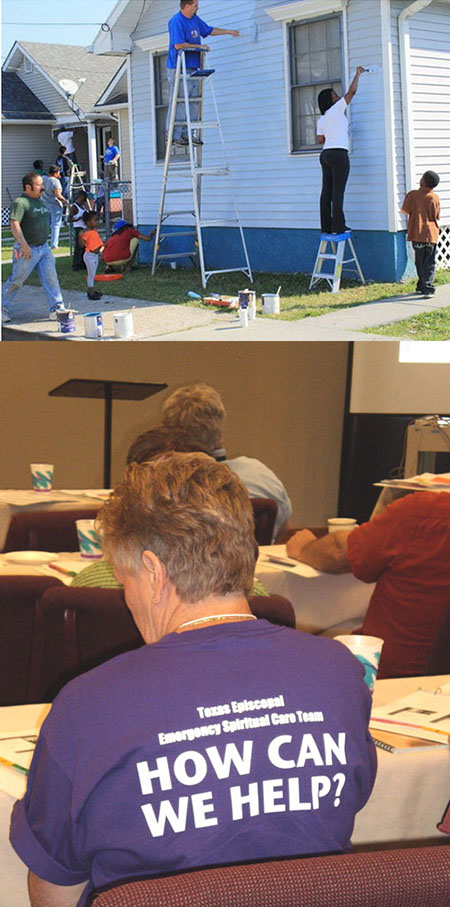Preparation is Key: Make a Plan, Be Informed, Prepare a Kit

In this blog Katie Mears, Director of our US Disaster Preparedness and Response Program, reiterates the importance of disaster preparedness and shares some tips on how to create your plan.
______________

When we hear about a disaster, like the recent bombings in Boston or the explosion in West, Texas, we often feel rather vulnerable ourselves. We inevitably wonder, what if that happened here to me or to my loved ones?
That’s a valid question to ask in the wake of such events, and there are steps that you can take to foster some peace of mind. According to FEMA and the American Red Cross, there are three basic things you can do that will make a big difference in ensuring safety for yourself and your family: make a plan, be informed and prepare a kit.
1. Make a plan: Encourage family members to memorize the phone number of the person you would call in an emergency, and keep copies of the number in your wallets as well. We often store those numbers in cell phones, which aren’t always functioning or available after a disaster. Talk through what you would do after a sudden event – where would you meet? Who would you contact?
2. Be informed: how can you quickly get accurate information about what’s happening? For example, identify agencies that send out local text alerts and sign up for the service. You also may want to buy a radio to use during emergencies.
3. Prepare a kit: The three basic things to have on-hand are a three-day supply of water (one gallon per person per day), food (non-perishable items) and cash (including small denominations and change).
Keep your plan fresh in your mind by regularly talking through it with family members and practicing it. Consider inquiring about emergency plans for other places that you and your loved ones spend time, especially schools, workplaces and nursing homes.
Disasters also prompt our desire to help in some way. When we see images of people suffering, we want to do something. Now. The tricky part is responding in a way that is actually helpful and appropriate. It’s essential to wait for the people who have been directly affected by the disaster to take the lead in indicating what they need and when they need it. In the case of the Boston bombings, church leaders in Massachusetts have simply asked for our prayers.
In disasters that cause severe damage to homes and other infrastructure, communities might need financial support or volunteers to assist in rebuilding, but sometimes not right way. Again, the best approach is to wait until those affected have indicated what kind of support is most needed and whether they are ready to house and deploy volunteers. Inserting ourselves at the appropriate time alleviates additional stress and complications that can actually make things worse.
Contributing to Episcopal Relief & Development makes that easy—we work with impacted dioceses, congregations and communities to assess what’s needed and when, in order to best support the most vulnerable people impacted by disasters.
Ultimately, the mix of compassion, emotion, empathy and outrage that accompanies a tragedy such as the Boston bombings and explosion in West, Texas, pulls us in many directions. Having a family or individual disaster preparedness plan can help us navigate through traumatic times and be ready to help others in need. Additionally, effective response requires us to discern what is most helpful and appropriate at any given time, and to continue to hold those directly impacted in our hearts throughout their recovery, long after the media images fade.
For more information and tips on how to be prepared for a potential disaster, download The Individual and Family Preparedness handout, and the worksheet from Ready.gov. These items can also be found in our Resource Library or our website.
Prayers in Time of Disaster
————–
Katie Mears is Program Manager for USA Disaster Preparedness and Response at Episcopal Relief & Development.
Photos: Top- Recovering after Hurricane Katrina. Bottom– Local Diocese Coordinator and other volunteers attending a Disaster Preparedness Training. Episcopal Relief & Disaster hold local and regional trainings for emergency planners, responders volunteers, they also assists dioceses with regional planning and coordination, in case of severe or widespread hardship.


